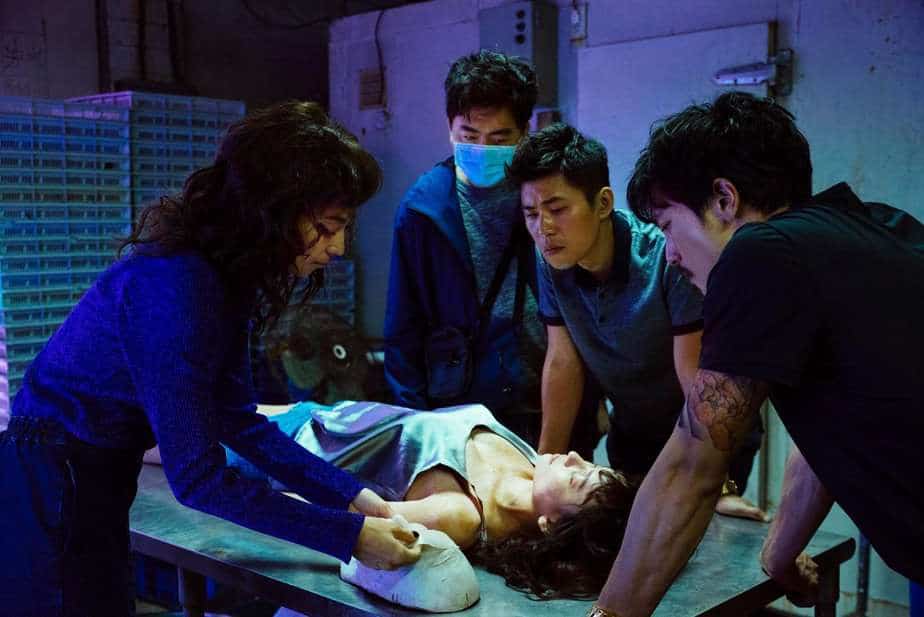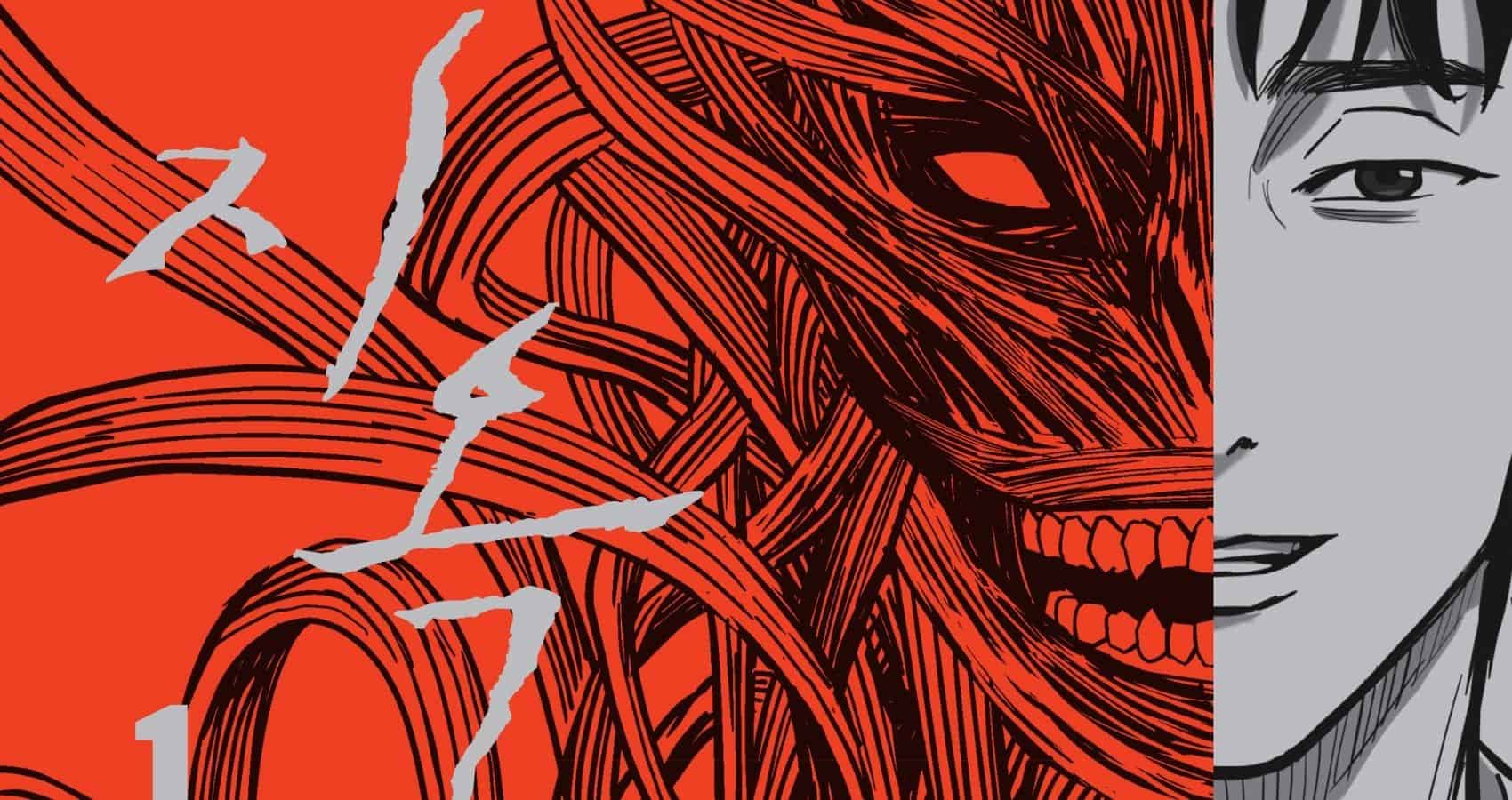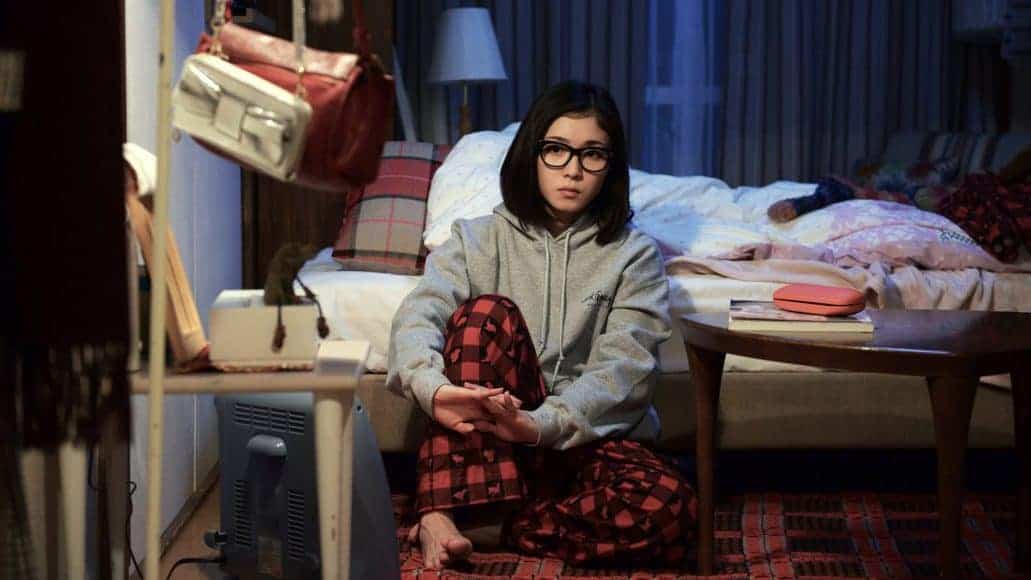Comedy is a very serious business, as director Kao Pin-chuan finds out the hard way with his third feature film “The Gangs, the Oscars, and the Walking Dead”, a film whose title sadly ends up being the most interesting part of it.
“The Gangs, the Oscars, and the Walking Dead” is screening at Osaka Asian Film Festival

This is the story of BS and Wenxi, two childhood friends and self-professed film nerds. The two dream of making a film that will take them to the Oscars, a project for which Wenxi thinks he has the perfect zombie story and storyboards ready for and wants to direct and which BS hopes to produce. However, their film projects so far have amounted to nought and have led to the two being knee-deep in debt with mob boss Brother Long, for who they do odd jobs when called upon. After being impressed with the two friends' botched up but effective filmmaking skills at a funeral, Brother Long decides to invest in their dream project, as long as they fulfil two of his conditions.
Firstly, he wants a part fo the film to be shot in Japan and secondly, the film should star Shanny, Brother Long's favourite girl. The second condition, in particular, proves to be a problem for Wenxi because the lead female in his script is a naive, innocent schoolgirl while the outlandish, flirty Shanny is the exact opposite of everything he wants the character to be. Throwing a ragtag team of assistants and technicians together, the two friends decide to make it work but when they accidentally end up with a dead body on their hands, the two friends embark on a crazy rollercoaster ride that nobody seems to have any control over.

Off the bat, “The Gangs, the Oscars, and the Walking Dead” makes it clear that it is not trying to be a deep or indeed sensible film, which is not necessarily a bad thing. In fact, comedy films can often benefit from an illogical setup and nonsensical set-pieces played to comedic effect. The problem, however, with this film is that a lot of the time the comedy falls rather flat. Is this due to the actors involved? Possibly, as Roy Chiu as BS and Huang Di-ying as Wenxi, while being decent enough in their roles respectively, don't really posses the sort of chemistry that the lead pairing demands. Yao Yi-ti is very appealing as Shanny, but her performance is hampered in the latter half, when she has a bigger part to play, because of the dubbing which the storyline requires her character to have.
But it is not solely the actors' faults. To the credit of writers Birdy Fong and Tsai Yi-ho, the plot does not stay stuck to its initial gimmick and continues to to evolve into something you do not expect it. However, the connecting tissue holding it all together is very weak, even practically non-existent in places, which makes the film feel like various different gags put together hurriedly ad unevenly. Some of the gags do have good comedic value and manage to steal a chuckle out but they are few and far in between. The various film references sprinkled throughout the film are fun to look out for. The involvement of Brother Long in the film's production as an on-screen character is a genuinely fun part of the film.

In fact, it is Lung Shao-hua's performance as Brother Long that ends up being the most fun element of the film. The veteran actor has a lot of fun with the womanising, brutal and maniacal mob boss, as a result of which the film finds a spring in its step once his involvement increases. His actions don't always make sense, but Lung's performance makes them believable. The Mexican standoff of sorts in the Japanese hospital is another peak point for the film. In the latter half of the film, the comedy becomes practically non-existent and for a comedy film, it does not bore well that you are actually glad that they have stopped attempting to be funny and gone a different route, even if said route is not all that fresh. Fart jokes and nose-picking scenes, after all, can only take you so far.
On a positive, the film looks and sounds brilliant. Cinematographer opts to change between handheld shots and static close-ups and shifts between the two effortlessly. The transitions between the film and the film-within-the-film footage are also smooth and distinguishable since both have their own distinctive looks.

Director Kao has previously said that the film was initially conceived as a one-page joke, which was later built upon. Sadly, it feels as if that one page might just have been the film's strongest part because the majority of it fails to impress.















